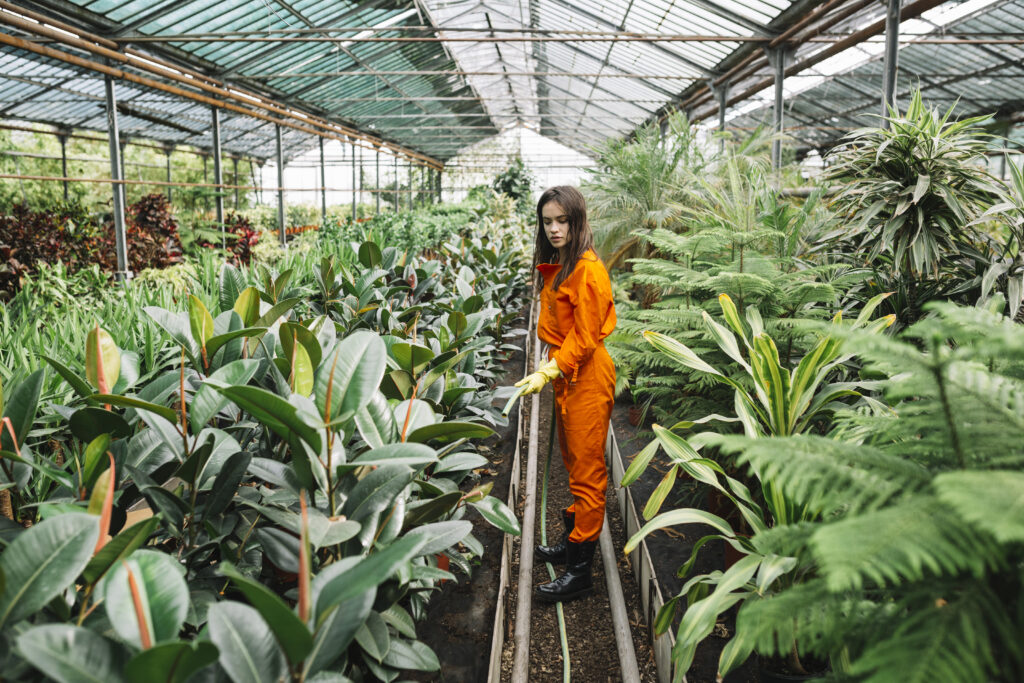Cannabis is a sustainable plant that takes little effort to grow, manage and cache. Interestingly hemp is an all-season herb that poses amusing health benefits. It is mainly an herbaceous plant with acicular steam and a height of 4 to 15 feet. Cannabis is an impending high-value crop that can be harvested to obtain seeds, oil fiber, or cannabidiol (CBD).
Industrial hemp is specifically grown for industrial use to create a wide range of commercial products. Industrial hemp can be processed into various products like textile, clothing, paper, biodegradable plastics, food, oil, insulation, animal feed, and much more.
The hemp plant is dynamic and offers a range of uses. It is a versatile crop and helps in making goods like building material, livestock, food, paper. It is also more durable in comparison to cotton. Hemp can be cultivated in all seasons and requires limited space and water to nurture.
Cannabis is an easy crop to work with and can be cultivated on different soil types. Still, it is a niche to use deep, well-aerated ground with a pH level of 6-7.5. It is imperative to keep the soil well moist and capable of retaining nutrients. Moreover, it is important to make sure that the soil used can drain excess water because, during the rainy season, it could result in damage to hemp plants.
There are thousands of industrial uses surrounding the hemp crop, so a high-quality yield can help in producing better products. This makes the soil grounding progression extremely important. While preparing the land for growing hemp plants it is vital to make sure that the soil is well-plowed and all hardpans are aloof from the soil, it helps the loam to easily discharge excessive water and also boosts the strength of the roots of the hemp plant.
The finest soil to attain a better harvest for industrial hemp is fertile clay loam or silt soil that has neutral alkalinity. Acidic sandy soil or heavy clay loam are unfit for industrial hemp seeds germination and can result in bad produce. Although the hemp plant can shoot in marshy clayey soil. Still, it does not result in a good yield and produces low-grade fiber. It is also important to grow the hemp plant in soil with good water holding ability which is also good in draining out excessive water.
Various factors like the use of fertile loams and organic fertilizers help in attaining good yield, still acidic level in the soil determines if the hemp seeds will be able to shoot or not. It is important to maintain the pH level of the loam at 6-7.5. Industrial hemp is unable to grow well in wet soils, so it is important to start testing the pH level of the soil months before the sowing of hemp seeds.
The use of organic fertilizers supports the hemp plant to gain vital nutrients and nurture to its maximum. It is also important to equally dispense the fertilizers on the ground. To assure the proper scattering of fertilizer in the soil. This helps the roots of the plant to develop evenly instead of shooting towards a particular side of the ground.
In general, industrial hemp is seeded in well-ploughed soil during the spring season. Loam preparation for hemp cultivation generally depends on the specific cultivation classification and rotational schemes. It is similar to spring wheat. Hemp seed germination requires a firm seedbed and an excellent soil contact to germinate well.
Hemp has traditionally been administered in Vedas as a holy plant that has proven medicinal properties. In recent years Uttarakhand has become the very first Indian state that has allotted licensed hemp cultivation. As per the norms an individual can legally grow hemp that has tetrahydrocannabinol (THC) content below the mark of 0.3%.
Uttar Pradesh has also sanctioned legalized industrial hemp harvesting. It is also speculated that soon Himachal Pradesh could turn out to be the third Indian state to legalize the cultivation of industrial hemp.
Many other states like Andhra Pradesh has also started hemp cultivation in a small village namely Alamuru. Here, 15 acres of the 27-acre farmland will be dedicated to the cultivation of industrial hemp while the remaining 12 acres will be used as warehouses, processing units, testing, and R&D facilities. Hemp is a high-value profitable crop that is also good for the environment. Farmers can earn around Rs. 20 thousand per acres.
Proper temperature and appropriate sunlight are the key to growing rich yielding hemp plants. Although the hemp plant is highly adaptive to change in temperatures. Still, the ideal constraint for growing industrial hemp is between 16°c – 27°C. Hemp crops can also endure warm and cold temperatures.
One of the popular means to sprout hemp seeds is through a paper towel. One has to simply place the hemp seeds between two paper towels and drizzle little water on the top while placing the paper towel in a container. It requires
watering the paper towel in the interval of every 24 hours. Then it calls for checking into the shooting of seeds by lifting the paper towel gradually. It is the most perplexing step, as many times while inspecting the germinated roots they come apart or break.
Hemp is a highly versatile plant that offers thousands of uses. It is soon going to gain recognition nationwide due to its multitude of doles. Although, growing industrial hemp is legal in some of the Indian states, soon it is going to gain necessary acknowledgment across the sphere as countries like the USA, Canada, and Australia have already acknowledged the potential of the industrial hemp plant. Do visit www.naplimited.com to know more interesting facts about industrial hemp.

